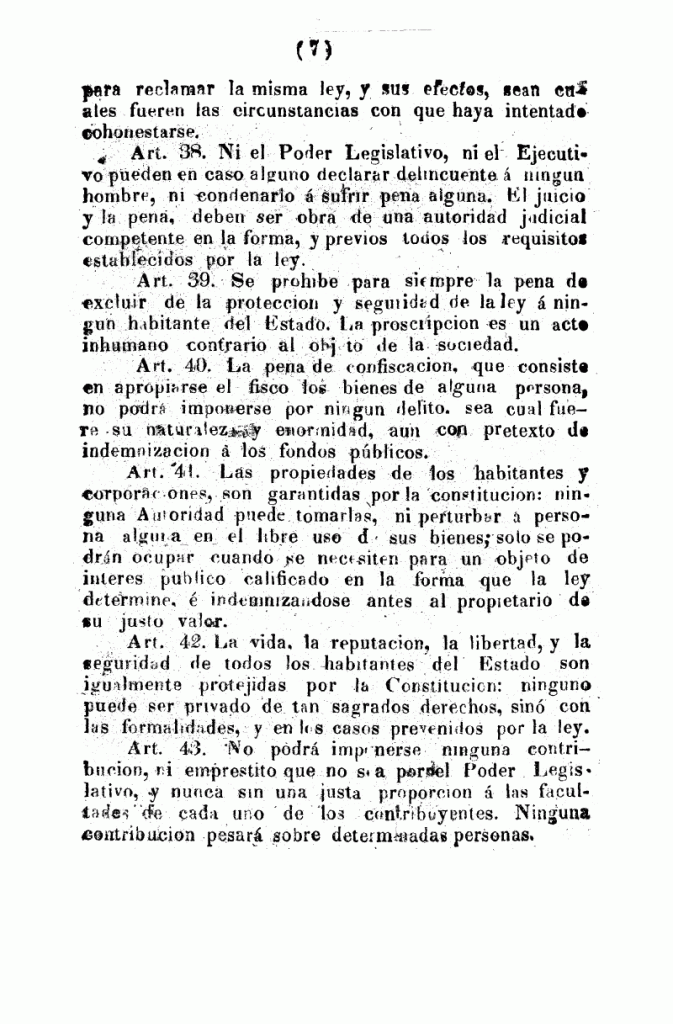
This document from the Postcolonial Blues period is an excerpt from the Nicaraguan National Constitution of 1838. It was established when Nicaragua became an independent republic after seceding from the Federal Republic of Central America, a republic consisting of the present-day Central American countries of Guatemala, El Salvador, Honduras, Nicaragua, and Costa Rica, and the southern Mexican state of Chiapas. The Nicaraguan government’s establishment of a new constitution reflects a trend among sovereign Latin American states to draft new constitutions during the Postcolonial Blues period. This particular excerpt from the constitution is from section four of the constitution, which outlines the rights and responsibilities of Nicaraguan citizens. The rights listed in this excerpt represent the ideas of the Postcolonial Blues period that promoted liberty and equality among all individuals.
For instance, Article 42 of the constitution provides for the equal protection of the life, reputation, liberty, and security of all Nicaraguan citizens (Nicaragua 1838, 7). This provision of the constitution directly represents popular concepts that were promoted during the Postcolonial Blues period because of its emphasis on individual equality and liberty. Additionally, Article 41 of the constitution asserts that no authority, unless the law grants it to do so for the sake of the public interest, can take or occupy land that has been guaranteed to citizens or corporations (Nicaragua 1838, 7). In the case of this article, the protections placed on land ownership represent another extension of the ideals upheld by individuals that supported freedom during this period. However, despite individuals’ support for greater freedom and equality, the rich landowners continued to dominate affairs during this period and several still suffered from injustices that extended from the colonial era.
Works Cited
Nicaragua. 1838. “Nicaraguan National Constitution (1838).”
By: Giovanny Bravo
